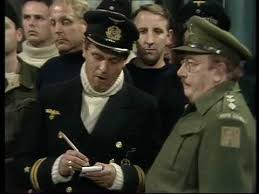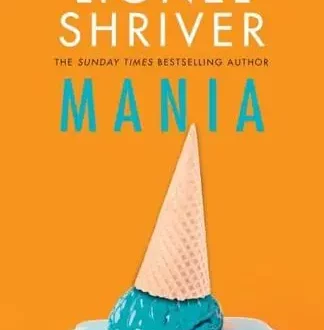For years afterwards in the 1950s, the war remained an inexhaustible subject with a huge audience. The memory thus transmitted to later generations is a fragmentary one. An obvious reason is the unparalleled extent and complexity of Britain’s war. For Russians, arguably the war can be encapsulated by the sieges of Leningrad and Stalingrad, the core of Vasily Grossman’s… Life and Fate. For Americans, memory seems to focus on Pacific islands and D-Day. For the French, on the “syndrome” of occupation, collaboration and resistance. But for Britain, the only European country to have fought the whole war, it cannot be easily abbreviated. Dunkirk, the Battle of Britain, the Blitz, the ‘Desert Rats’ in north Africa, the Battle of the Atlantic, Arctic convoys, ‘Dambusters’, the Burmese jungle, SOE agents, prisoner-of-war camps, D-Day, Arnhem, and lately code breaking and decryption – all of these have powerful resonances… So the war has become a bewildering kaleidoscope of episodes. One of the most important war novelists, Evelyn Waugh, set action in Norway and Crete – both defeats, and both of secondary importance… The Dam Busters (1951) commemorated a real but highly unusual operation. The more realistic themes of wartime films disappeared after 1945, the involvement of ordinary people in and out of uniform, the prominent role of women, and the down-to-earth solidarity of the nation.
Instead, films of the 1950s – such as The Wooden Horse (1950), The Cruel Sea, (1953) and The Cockleshell Heroes (1955), – concentrated on small-scale historically based episodes emphasising the strains of war on a few stoical but sensitive individuals….
Despite a commonplace view that the English are excessively interested in the war, it rarely figures as an important theme in post-1960s culture. Its literature is largely forgotten. Films and television serials may occasionally be set during the war years- The English Patient (1996), Charlotte Grey, (2001), Enigma (2001), Atonement (2007) and TV series such as Foyle’s War (from 2002) – but they are not about the war, which provides a background for costume drama. This sets England apart from most other countries involved, for which the war remains important as epic or a trauma. No English film is comparable with Lacombe Lucien (France, 1974) Come and See (USSR, 1985), Au revoir les enfants (France 1987), Stalingrad (German, 1993), Saving Private Ryan (USA, 1995), Band of Brothers (USA, 2001), The Pianist (Poland-France, 2002), Downfall (Germany, 2004), Black Book (Holland, 2006), Indignes (France, 2006), Katyn, (Poland, 2008) or In the Fog (Belarus, 2012).
[I would have said Das Boot as well.]
…Nothing with the ..power of First World War poetry remains in our culture from the Second…
The English and their History by Robert Tombs (Chapter – Memory, History and Myth)
What Tombs describes as “the involvement of ordinary people in and out of uniform, the prominent role of women, and the down-to-earth solidarity of the nation” would have been impossible for Waugh to portray, who had no love for ordinary people and whose disllusioned view of the war in his Sword of Honour trilogy, Brideshead Revisited and Scott-King’s Modern Europe was that a war that should have been fought for Christian and preferably aristocratic civilisation had been won by Christian-persecuting Stalin and the welfare state.
The most powerful interpretation of that war for me is the documentary The World at War. I think of the title and I can hear the music and see the face after face under the flames. Britain has made excellent television and that was a high point.
The cultural products of World War II that have been taken to heart and are quoted are the television comedy series, Allo Allo and of course the far greater Dad’s Army, the creator of which, Jimmy Perry, has just died.
Alan Coren’s wrote a perceptive review when Dad’s Army first hit the screen:-
They belong to the oldest regiment in the world, the men of Dad’s Army. The Sidewinder may replace the siege-engine, and the Armalite the longbow, but the nature and composition of the King’s Own 17th/21st Incompetents change not at all. I watched them all troop on again last night, out of step, ragged, potty, insubordinate, inept, and who are Arthur Lowe and Clive Dunn and John Le Mesurier, I said to myself, but Bardolph and Nym and Ancient Pistol. Or, come to that, Schweik and Yossarian and Stan Laurel…
these particular khaki fools do not discredit to the great tradition… The essential quality of mock-heroic is always sustained by the parody of the Brit-in-arms… and behind the daftness there lies a certain valuable poignancy which is not altogether explained by nostalgia. I suppose what I mean is they would have died too, if the greater folly had demanded it.
Bardolph, Nym and Ancient Pistol are part of a grander and nobler story, the warrior king Henry at Agincourt, whose cause, we are elaborately told, is just, whose valour apparent and who ultimately conquers. Captain Bank Manager Mainwaring, Spiv Walker, and Stupid Boy Pike have no such juxtaposition in the text. Instead the just cause and valour and winning are cultural and historical memories hanging in the air. The England that they are defending is class-ridden, amateur, cosy and lovable – a sea-side town on the south coast with Church teas and a vicar. Mainwaring is a pompous buffoon but we never doubt that he is patriotic and brave, that his absurd platoon are touched with heroism and self-sacrifice and that the enemy is worth defeating.
Update:- Don’t Panic: The Dad’s Army Story was showing tonight and is on i-Player. A very nice appreciation by Victoria Wood, who also sadly died this year.


